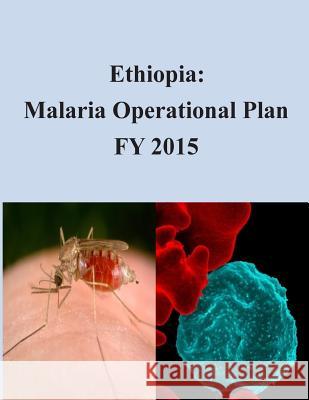Ethiopia: Malaria Operational Plan FY 2015 » książka
Ethiopia: Malaria Operational Plan FY 2015
ISBN-13: 9781507801024 / Angielski / Miękka / 2015 / 74 str.
Malaria prevention and control are major foreign assistance objectives of the United States Government (USG). The purpose of this malaria operational plan (MOP) is to provide a framework and a rationale for supporting malaria prevention and control projects in Ethiopia with fiscal year (FY) 2015 funding to accomplish the USG's foreign assistance objectives. Previously published MOP documents available on www.pmi.gov were used as references to develop this document for Ethiopia. Proposed President's Malaria Initiative (PMI) Ethiopia FY 2015 funding is contingent on USG official approval processes; any approved PMI FY 2015 funding will likely be unavailable for authorized expenditures until late 2015. The MOP process considers information from the Ethiopian Federal Ministry of Health (FMOH), international malaria program donors including the Global Fund to Fight AIDS, Tuberculosis and Malaria (Global Fund), malaria subject matter experts, and other malaria program stakeholders about the malaria situation, and the malaria control program capacities and gaps in Ethiopia. The President's Malaria Initiative was launched in June 2005 as a 5-year, $1.2 billion inter-agency initiative to rapidly scale up malaria prevention and treatment interventions and to reduce malaria-related mortality by 50% in 15 high-burden countries in sub-Saharan Africa. The USG announced Ethiopia as a PMI focus country in 2007, supported by $20 million in PMI funding beginning in FY 2008. PMI support was initially targeted to malaria control activities in the Oromia Regional State, which at that time had about one-third of Ethiopia's malaria burden, population, and land area. Together with both Global Fund and PMI funding and the support from other donors and partners, the Government of Ethiopia's (GoE) FMOH has been able to dramatically scale-up its efforts in malaria prevention and control since 2005.
Zawartość książki może nie spełniać oczekiwań – reklamacje nie obejmują treści, która mogła nie być redakcyjnie ani merytorycznie opracowana.











